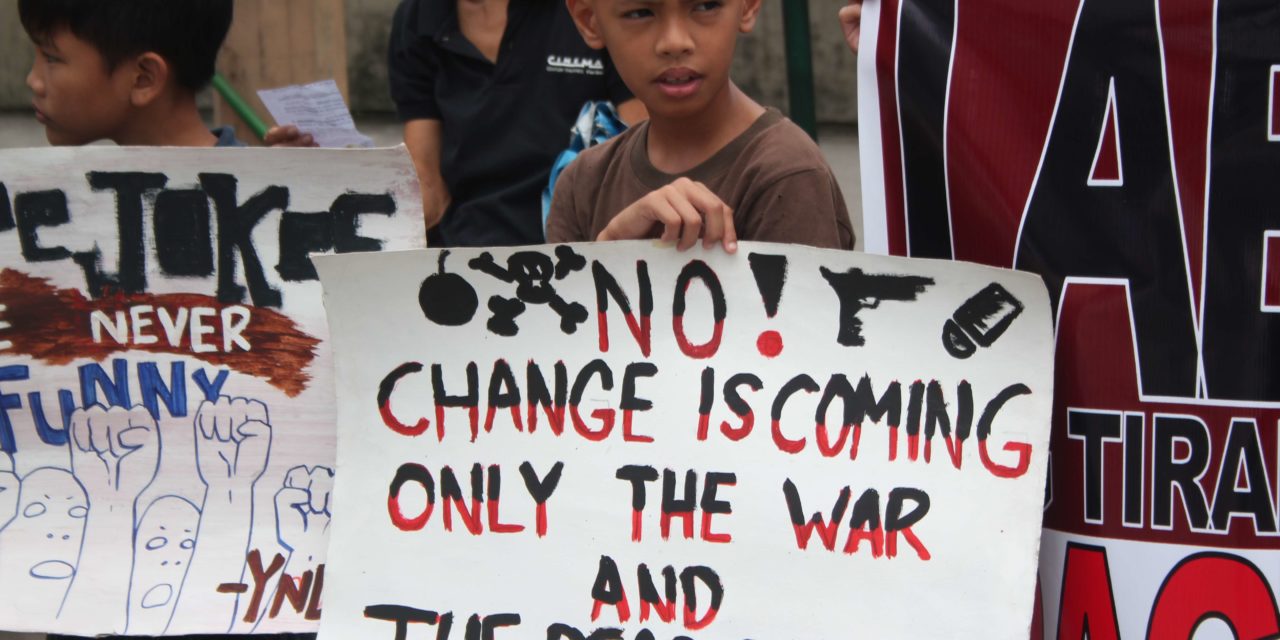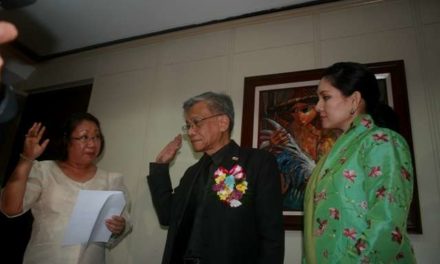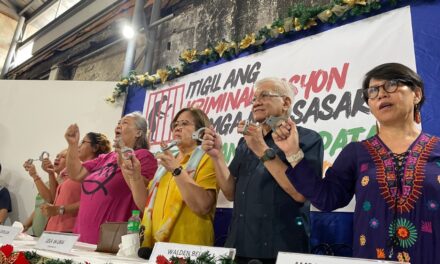The withdrawal of the Philippines from the International Criminal Court will further give rein to extrajudicial killings and violence against women, indigenous peoples, environmental defenders, activists, as well as impinge on the exercise of rights of the Filipino people as a whole. Even before this recent declaration from Mr. Duterte, the culture of impunity has become more widespread and has deepened under his government. To cite: 20,000 killed in the war on drugs and no cases have progressed, much worse no-one has been punished, with police forces figuring significantly in the killings; indigenous leaders and environmental defenders are killed with impunity in the name of corporate interests; corporations continue to practice contractualization with workers having no recourse to local laws because the president himself has refused to end it, reneging on his presidential campaign promise.
The space at the national level to voice dissent and seek justice for victims of human rights violations in the Philippines has been undermined by the Duterteadministration. The petition to tag activists as terrorists blurring the lines of legitimate dissent and terrorism; the law granting subpoena powers to the police despite clear track record and recent cases of abuse, coupled with continued attacks on institutions and individuals are clear indications that genuine spaces for redress at the national level are rapidly shrinking if not long since gone.
Duterte is again employing bully tactics by declaring the Philippines’ withdrawal from the ICC, which was also intended to push the idea that such withdrawal could spur more States to leave the ICC. In Southeast Asia, only the Philippines, together with Cambodia and Timor Leste, have ratified the Rome Statute, and thus the Philippines withdrawal could undermine the credibility and significance of the institution and further strengthen the architecture of impunity under increasingly authoritarian governments Asia. The intention is to force the ICC to backpedal on the case against Duterte where a preliminary examination has already been launched for his crimes against humanity.
The ICC is not a political tool being used against Duterte by mere detractors but a tool against impunity of those with legitimate grievance. It is a tool of peoples to seek redress, to fight dictators and fascists like Duterte. When a government passes a law that violates the separation of powers and grants the police subpoena powers thereby putting its people under a police state, when the president and a government kills 20,000 poor people accused of being drug users without due process, when a government oppresses its workers, when a government kills activists, indigenous peoples, environmental defenders to promote corporate interests, when a government is misogynist and promotes violence against women, it is the right of the people to use international legal mechanisms to thwart this government.
We, therefore, join the ranks of other civil society organizations, human rights advocates, activists in denouncing this latest unilateral act of Mr. Dutertewho has once again shown that he is losing his legitimacy as leader of a democratic society respectful of human rights.
Signatures,
Focus on the Global South, Lilak, Women’s Legal and Human Rights Bureau (WLB), Coalition Against Trafficking of Women-Asia Pacific (CATW-AP), World March of Women, WomanHealth, Foundation for Media Alternatives (FMA), Workers’ Party (PM), Center of United and Progressive Labor (SENTRO), nbsp, Alyansa Tigil Mina (Alliance Against Mining/ATM)
Photo legend: Duterte’s campaign slogan, “Change is Coming” becomes an eerie foreshadowing of the “change” that has swept the Philippines—deepening culture of impunity and misogyny, increasing violence and criminalization of dissent, and escalating extrajudicial killings and human rights violations. 2017 September 21. Quezon City, Philippines. Photo by Galileo de Guzman Castillo.









